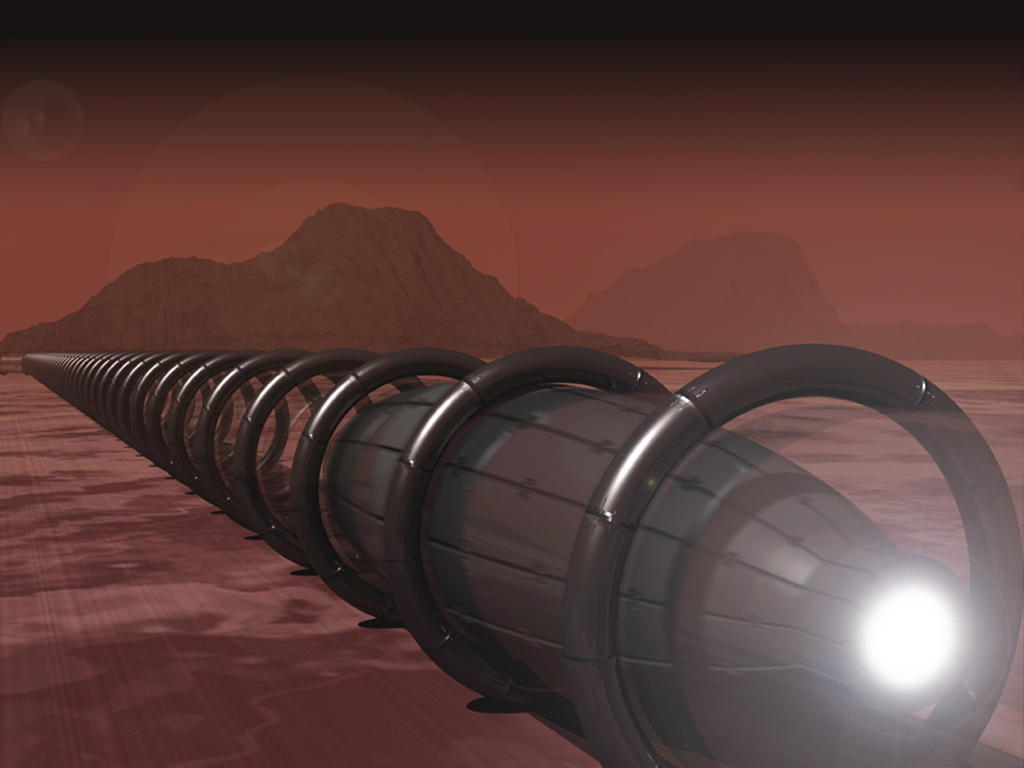Charles Bombardier, is a Montreal-based innovator, has
uncovered an idea for a hypothetical space train called Solar Express that can
take passengers and freights between planets faster than any present systems.
Solar Express travelling at roughly 1% the speed of light, about 3,000 km per
second (1,864 miles per second), dropping the travel time between Earth and
Mars to less than two Earth days.
Bombardier said on Solar Express site, "In space, the
most costly portions of travel are the acceleration and deceleration phases.
The energy required for those portions is terrific, particularly for something
as heavy as a space train. In addition, if you were to start shipping cargo, it
would become very expensive.
"However, once the train reached its travelling
speed, its energy consumption would be nominal. That’s the idea behind the
Solar Express model. It would never stop; instead, space wagons/capsules would
rendezvous with it."
While it is necessarily important to keep in mind that this
is just a theoretical idea and not a project in fact being implemented in
reality (yet, besides), the team is looking at outside-of-the-box answers to
humanity’s space travel problems.
Express would contain of a series of allied cylinders almost of 50 meters (164
feet) in length. Six of these cylinders, which you can consider as train cars,
would be connected together in a straight line and hurtle through space.
To launch, one of the most expensive features of space
travel, Solar Express would use rocket boosters, keeping a low amount of fuel
on standby to regulate course. Then, the train would slingshot around astronomic
bodies to gain speed without requiring more fuel.
located along the train’s path could be used to capture solar energy and
transfer it by laser to super-capacitors. Water gathered from comets or small
moons would be used for humans living on the train and transported to other places."The gathered water could also be used to create
hydrogen and propellant, but the central propulsion system should take the form
of an ion thruster."
After in motion, the train would never stop. Instead, smaller crafts would join up with the train when it orbits a planet to collect supplies
and drop the passengers. The capacity to keep going forever would cut expenditures,
though the up-front manufacture cost would be huge.
still figure out, such as how to control such a fast ship, how the space
shuttles would discharge goods from the moving craft, and how to get it to such
great speed.
Bombardier said,"Clearly, there is a lot to consider
starting with dimensions, speed, masses, energy, etc. How do you control such a
multipart vehicle? The Solar Express is a basic idea and we would like to know
how we could advance it."
If you can take the imaginative dive, though, the opportunities
of a working Solar Express would be senseless. According to Kritin Tablang from Forbes, a tour from Earth to the Moon would take only 2.13 minutes, although a
trip to Mars would take about 37 hours. A trip to Neptune, the utmost planet
from Earth, would take almost 18 days.
Mars by using current technology.
Solar System is one of the many restrictive issues for us humans, throwing
around ideas to circumvent the old-style approach is always a good thing, no
matter how doubtful they are to ever come to achievement.
Bombardier’s remaining questions about Solar Express. Till then, we have to
just imagine it.
















No comments